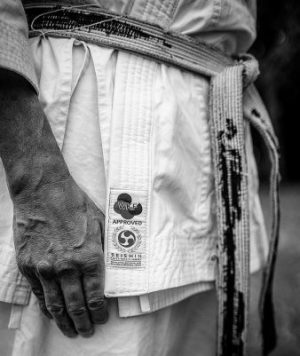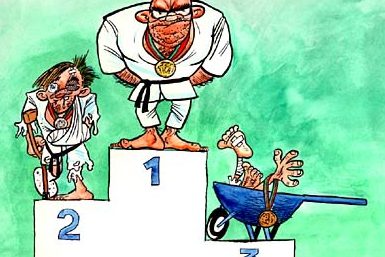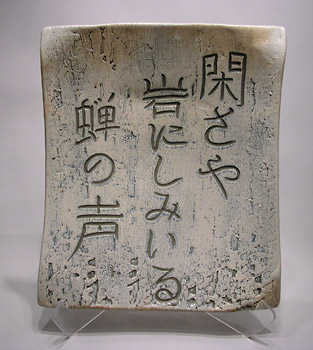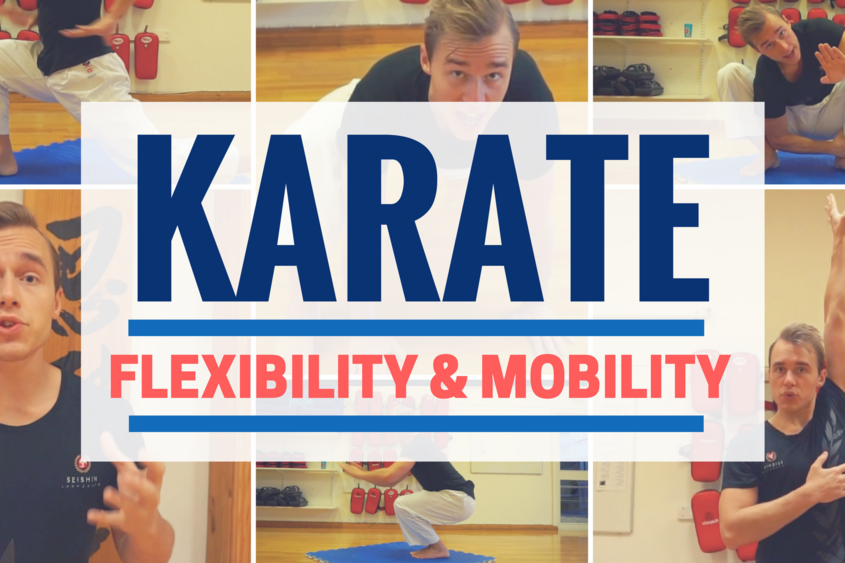“How did training go?”
“Great! Sensei didn’t remark on anything!”
That’s what I answered my friend after visiting a new dojo in Okinawa, Japan.
FACEPALM.
I was so naïve!
You see, if a Japanese sensei doesn’t criticize your techniques, it’s a BAD sign. That means you’re not ready to improve.
I thought it was a GOOD sign.
But what else would you expect from a 20-year old Swedish dude chasing his dreams in the birthplace of Karate?
Despite having studied at Okinawa University for many months by then, I still didn’t understand the Eastern mindset.
I decided to learn the hard way…
Here’s what I discovered:
1. Process Oriented vs. Goal Oriented.
In the West, we are hyper focused on goal setting.
Nothing wrong with that. I love smashing goals myself.
But in the East, it’s about the journey. It’s about reaching, not achieving.
- Meaning – to get a black belt is not nearly as important as being one.
- And to win a championship is not nearly as important as being a champion.
Get it?
That’s why the Eastern martial arts have the suffix “-do” attached to them (i.e. Judo, Kendo, Aikido, Karatedo etc.). Do literally means “path”, or “way”.
But of course, this is not a literal pathway. It’s a spiritual one.
A constant journey of self-discovery.
Progression over perfection.
2. Learning by Asking vs. Learning by Doing
In the West, we love asking questions.
Often we want the answer before we even know the question!
In the East, it’s the total opposite…
Typically, a Western student wants to know “what, why, how” before attempting an exercise. Otherwise they don’t see a reason for doing it, because they don’t know the goal (see previous point).
But the Eastern student is encouraged to find the answers by practicing.
The role of a Sensei is actually not to answer questions, but to aid self-discovery.
Again, it goes back to my previous point of being process oriented.
Learning in the East happens through the act of doing. The kinaesthetic sensation of practicing (versus the intellectual pursuit of questioning) leads to the answers being physically manifested in the flesh.
A Sensei can literally make you practice the same technique for hours before you finally “get it”.
That’s why the technical level is so high in the East.
Practice pays off.
3. Capitalism vs. Culture
Finally, let’s talk money…
In the East, a dojo is not run like a company. Why? Because martial arts are part of their cultural identity. It’s a life philosophy.
In the West however, many people offer Karate like any other service or product.
They call their students “customers”. They call dojo visitors “prospects”. They call themselves “CEO”. They don’t award belts, they sell them. They have binding contracts.
The list goes on…
I call these places McDojos.
In the East, this concept is strange. That’s why a Sensei usually has a side job (i.e. taxi driver, cook, janitor, school teacher), because the idea of monetizing their Karate expertise is unconceivable.
It’s a way of life – not a business.
___________
So…
Do you practice Eastern or Western Karate?
Personally, I believe in combining the best of both worlds.
Here’s how:
1. Set GOALS based on DOING, instead of ACHIEVING. For example; “I want to try my Karate skills in a MMA fight” (not: “I want to win a MMA fight”). This allows you to stay motivated, have ambitious goals and enjoy the journey too.
2. PRACTICE deeply, but with an internal dialogue of QUESTIONING yourself (i.e. “what happens if I do like this or that”) to keep evolving. This allows you to discover the techniques, movement patterns and training methods that suit you best as an individual.
3. Always prioritize PURPOSE over PROFIT. It’s fine to make money, your Sensei needs food on the table too. But do it with INTEGRITY. For example, a big “McDojo” conference recently offered me thousands of dollars to be their opening speaker. I said no, because it didn’t vibe with my values. Legacy over currency.
At the end of the day, there’s no right or wrong way to do Karate.
It’s simply a matter of what works best for you! 🙂
That’s the Karate Nerd way.
Good luck!



53 Comments